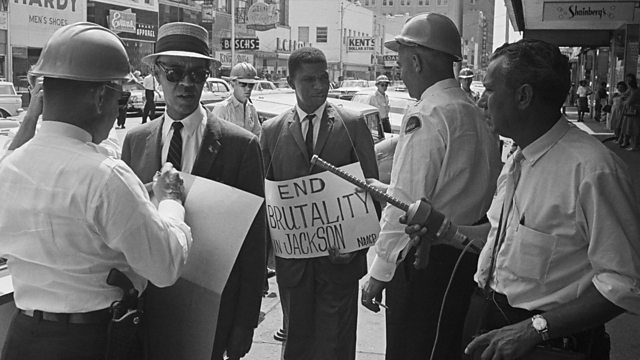Medgar Evers
In honor of Black History Month, every school day The Cardinal will feature a prominent and historical Black American, living or dead, who has worked toward change, advancement, and/or world peace. Some of them are heroes, and some are unsung heroes, who deserve recognition, and have made a contribution to society.
February 7, 2023
Medgar Wiley Evers was an American Civil rights activist born on July 2, 1925, in Decatur, Mississippi. His wife was Myrlie Evers-Williams. They took care of their three kids, Darrell Kenyatta Evers, Reena Denise Evers, and James Van Evers.
Evers was mainly known as NAACP’s first field secretary for Mississippi. He played a key role as a leader in the Civil Rights Movement, working to abolish segregation and bigotry against African Americans: Standing up for equality, and organizing boycotts that are intolerant of races and gender. In May 1954, Thurgood Marshall and Evers worked to legally end segregation in schools with the Brown vs. Board. He made sure that everyone had the right to vote while being treated equally.
Evers also helped out crimes against African Americans by investigating cases where they’ve been assaulted and killed because of the color of their skin. Although all he ever aimed for was equality and respect for all, not everyone agreed with what he worked for. He was sent constant death threats and even the house of his family went into flames. Despite facing death threats and violence, he continued to advocate for equality and respect for all.
Evers sadly passed away on June 12, 1963, from being struck by a bullet as he exited his car at his home. He was taken to the local hospital in Jackson, where he was initially refused entry because of his race. His family explained who he was and he was admitted. But he died 50 minutes later. He was buried on June 19, 1963, at Arlington National Cemetery.
Medgar Evers’ life and legacy continue to inspire and impact modern-day society. Despite his tragic assassination, his tireless activism and advocacy for civil rights helped to bring his community and family closer together. Medgar Evers’ legacy lives on through his family and the continued fight for civil rights and racial equality. His death was a huge inspiration for the Civil Rights Act of 1964, which helped to end racial segregation and discrimination in the United States. Today’s air may not be the most racism free, but with the actions of Medgar Evers, we are a few steps closer.


